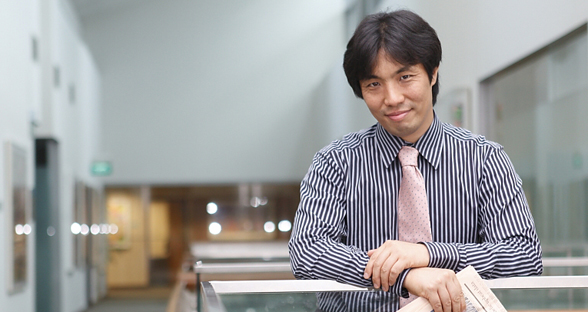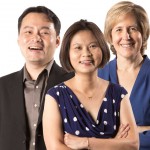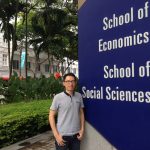Associate Professor Tomoki Fujii has taught at SMU’s School of Economics (SoE) since 2005. He is currently teaching Economic Development in Asia (EDA) for undergraduate students and Environmental Economics, Policy and Business for Masters students. Here at SMU, we believe in a unique teaching pedagogy that emphasises both theory and application, taught through interactive discussions. Needless to say, our professors need to be able to impart knowledge, inspire and guide the diverse student population. With multiple Masters and PhD qualifications under his belt, Prof Tomoki represents the calibre that SMU requires from its faculty members.
What prompted you to join the SMU faculty?
I had several offers from elsewhere but I chose SMU because of the research environment, excellent colleagues and good package overall.
How has teaching here been different from previous universities?
This is my first job after my graduate school. I taught in a few different places before joining SMU but I cannot make a fair comparison as I taught under completely different capacities.
How do you conduct lessons? What do you focus on, such as class participation or group projects? Why do you emphasise on these components?
My courses, especially EDA, are broad. For example, I try to give students some exposure to important elements of economic development in Asia. All components, including presentation, debate, participation, quiz, mid-term, and final, are important as they are all relevant for my course.
Do you think the grading of class participation has influenced the class dynamic? How so?
Of course, it does. Students respond to incentives. Using class participation, I give them incentives to give feedback to others so that they can learn not only from me but also from their fellow classmates. This also helps me to ensure everyone has a fair amount of chance to participate.
How has your teaching and research experience been so far? What areas would you like to focus on in the future?
My experience has been good overall so far. My focus has been development and environment and it will remain so in the foreseeable future.
What do you think makes SMU or specifically SoE students stand out?
SMU students generally stand out in their oral presentation skills. SoE students tend to have better analytical skills than others on average, in my experience.
What three words would you use to describe SoE faculty?
Approachable, Collegial, Dynamic.
How do you think that a student’s choice of university and major shapes their future?
It affects the student’s course of life significantly. It not only influences what you learn but also who you interact with and how you will be regarded by your potential employers, whether you like it or not. One important thing is to make a choice based on what you really like to do. I haven’t taken a shortest path to become an economist, but I don’t really regret my choice as I have gotten exposure to what I was and remain interested in.
How have SMU students changed over the years?
I haven’t seen a big change. I find that within-cohort variations are far larger than between-cohort variations.
What has your most memorable teaching experience in SMU been?
I can’t name a single most memorable event, but I generally feel good when I see my students doing well after my courses.
With the answers above, Prof Tomoki has succinctly summarised the key characteristics that define both the students and faculty from the School of Economics. If you are interested in learning more about SoE from a student’s perspective, be sure to read this post!
Undergraduate acceptance is open, so if you’ve been offered a place with us, you can accept online at http://admissions.smu.edu.sg/apply/accept-offer.







